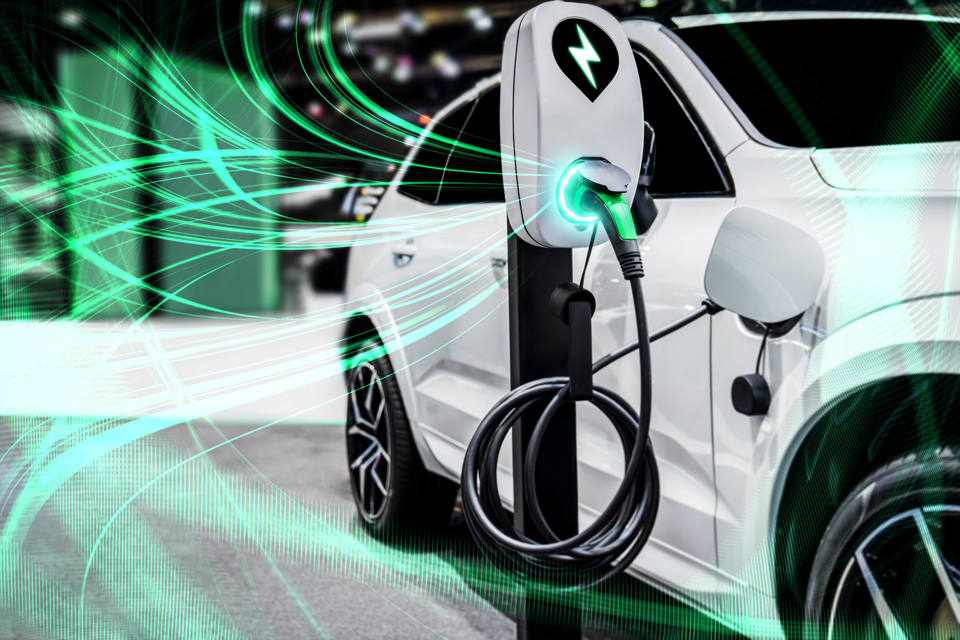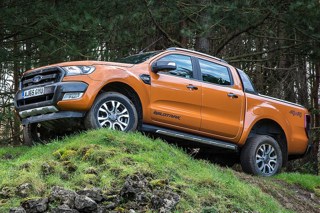- Most drivers doubt 2030 petrol ban
- Used EVs outpace new 15 to 1
- Few new EVs under £20k
- Most drivers doubt 2030 petrol ban
- Used EVs outpace new 15 to 1
- Few new EVs under £20k
The journey to a zero-emissions new car market by 2030 is under threat with most drivers no longer believing the Government will stick to its plan to ban new petrol and diesel vehicle sales by the end of the decade, according to Auto Trader’s latest Road to 2030 Report.
Despite a spike in March as buyers rushed to beat April tax changes, demand for new electric vehicles (EVs) has flatlined at just 18% of new car enquiries in 2025, it reveals.
While official June figures showed a strong month for new EVs, they still account for less than one in five new car sales so far this year.
Read: New car market grows, but risks missing EV targets, warns SMMT
New projections based on current trends suggest that EVs will account for just 45% of new car sales by 2030 – far short of the 80% target mandated under the UK Government’s Zero Emission Vehicle (ZEV) programme.
“There is genuine concern that 80% of consumers doubt the Government can meet its 2030 goal of banning new petrol and diesel vehicle sales,” said Ian Plummer, commercial director of Auto Trader.
“While the availability of affordable new and used EVs is increasing, and the £1.4 billion recently committed by the Government to support the transition is promising, it may take time for these improvements to reach and reassure the wider public.”
Used EV boom threatens mandate
Auto Trader’s analysis highlights a widening gap between consumer interest in used versus new EVs. The platform has seen a 92% year-on-year rise in used EV enquiries, with second-hand models generating 15 times more interest than new ones.
While encouraging for the second-hand market, this trend risks undermining the ZEV mandate for new cars, which requires 28% of all new vehicle sales in 2025 to be zero-emission.
This shift is being fuelled by affordability. The average driver is unwilling or unable to spend more than £20,000 on their next vehicle, yet just eight new EV models are available below that threshold - compared to 17 internal combustion engine (ICE) equivalents. By contrast, Auto Trader lists nearly 12,000 used EVs priced under £20,000, including a sixth under £10,000.
“Affordability still remains a blocker,” said Plummer. “With one in three new cars sold in the UK now having a plug, we know there’s consumer appetite for the new technologies now on offer. The issue has always been affordability and new electric models coming to market under £20,000 should help to close the gap between electric sales and transition targets.”
Tax changes and discount cuts
Recent policy shifts appear to be slowing momentum in the new EV market. According to Auto Trader, average manufacturer discounts on new EVs dropped from 12% in March to 10% by May, while April’s tax reforms - including the Expensive Car Supplement and changes to Vehicle Excise Duty - have added over £600 to the cost of a new EV.
As a result, 42% of drivers surveyed said they are now less likely to choose an electric vehicle, with 52% citing cost as the biggest barrier.
“This data highlights that while EV interest is growing, the opportunity to convert curious buyers into confident adopters in their next car purchase is now and we have to act,” Plummer said. “We urgently need to rethink the Expensive Car Supplement and vehicle excise duty tax changes and to focus on public information campaigns to enable consumers to feel good about making the switch.”
New models show some promise
Despite the challenges, some low-cost new EVs are making an impact. The Dacia Spring, the most viewed new EV on Auto Trader shortly after its launch, and the Jaecoo 7, which ranked second overall in May, show that affordable electric cars can win consumer interest.
Meanwhile, hybrids continue to surge, now accounting for 37% of new car advert views - up from 33% the previous month - as government policy allows hybrid sales to continue until 2035 under ZEV rules.
“There’s plenty for the industry and government to do now to set us up for success,” Plummer concluded. “But without urgent intervention, we risk falling short of our decarbonisation goals - and losing public confidence along the way.”
Login to continue reading
Or register with AM-online to keep up to date with the latest UK automotive retail industry news and insight.




















Login to comment
Comments
No comments have been made yet.